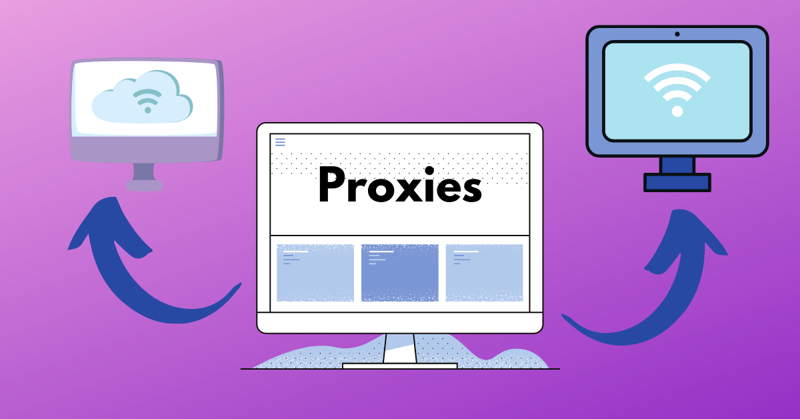In 2021, reports show that e-commerce sales amounted to $4.9 trillion, and experts say the figure will reach about $7.4 trillion by 2025. Since data informs decision-making, businesses need to go the extra mile to gather and analyze data to create enterprise insights and foster growth. Besides, they must go further to protect themselves against data breaches.
This guide looks at proxies and why they are taking over the e-commerce world.

Table of Contents
Proxies and E-commerce
Proxy servers are devices that act as a gateway or bridge between the user and the internet. A proxy server’s primary role is to accept users’ requests, deliver them to the target website, and transfer responses similarly while hiding your IP address.
Reasons Why Proxies Are Becoming an Integral Part of E-commerce
Proxy servers provide valuable security to businesses. Without them, connections will reveal users’ actual IP addresses, thus making them susceptible to cyberattacks. To prevent this, e-commerce stores must invest in security and safeguard their data while carrying out any activities online. Discussed below are some reasons proxies are becoming integral to business today.
- Great Connection Speed
Proxy servers can provide faster connections. Besides, they use a cache mechanism to ensure not every request one makes reaches the server but instead uses the cached content. This act drastically helps reduce the server request time while hiding your IP and maintaining data quality.
- Smarter Competitor Market Research
To succeed in the competitive e-commerce environment, every online business must collect and collate insightful data from competitors. However, it’s worth noting that some reputable websites use advanced techniques to hide their information. For instance, some use geo-restrictions and CAPTCHA to limit access by bots. You can use backconnect proxies to access a pool of different IP addresses for better results. With bestproxyfinder.com, enterprises can locate reputable providers that offer proxies to bypass the restrictions and collect data without being detected.
- Improved Security
While most people adapt to online shopping and digitization, cybersecurity threats are rising. With the increase in cyber threats, business owners should never underestimate the use of proxies. They should scan all the traffic passing through their systems for harmful threats or content.
- Better Traffic Balance
When traffic on a website is not well-balanced, it can crash. To avoid this, entrepreneurs can use proxies and other data storage facilities. In this regard, proxy servers work by creating new access points and also provide cached data on request. These functions give consumers better protection and experience. Click here to read more about how to use proxies by location.
Potential Issues of Proxy Servers
Proxies are great for e-commerce, but they come with concerns, especially if not implemented properly.
- Security Issues
The biggest concern with using proxy servers is the potential security risks. Proxies can cache websites and serve them without connecting to the web servers, which means that any malicious code contained on a website could be stored on the proxy server and later transmitted to users. Additionally, proxy servers bypass firewalls and other security measures, allowing hackers or malicious actors to access sensitive data.
- Privacy Concerns
If a proxy server does not have the correct configurations, it can save logs of all the websites you visit and the data you transmit. Third parties, such as your internet service provider or government, could access this information. Additionally, proxy servers can track your online activity, and opportunistic providers may even sell this data to advertisers.
- Compatibility Issues
Another potential issue with proxy servers is that they can sometimes cause compatibility problems. This is because proxy servers use different protocols, which can be incompatible with some devices or software. Some proxy servers work with specific browsers, such as Internet Explorer or Safari.
How to Choose the Best Proxy Provider
Now that you understand the pros and cons of using proxies in your business, here are some factors you need to consider when choosing a proxy service provider.
- Customer support
- Level of security and privacy
- High internet speeds
- The IP pool size
Conclusion
From the above, it’s clear that e-commerce stores need proxy services. However, as the online business industry might see double growth in the next three years, the bad actors continue to invent new ways to pose threats. Thus, for online business owners to protect their information and succeed, they must adapt to new ways of doing things and invest in tools like proxy servers.



